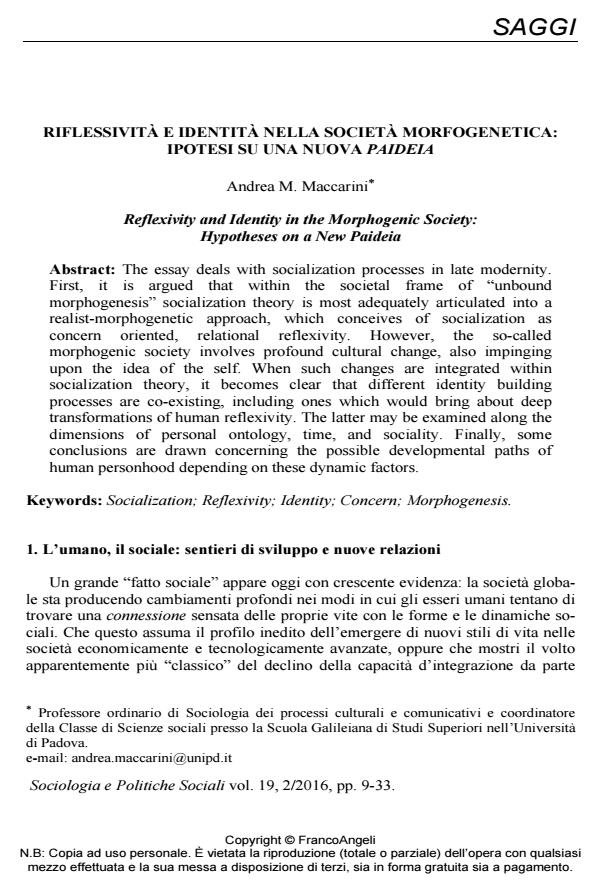Riflessività e identità nella società morfogenetica: ipotesi su una nuova paideia
Titolo Rivista SOCIOLOGIA E POLITICHE SOCIALI
Autori/Curatori Andrea M. Maccarini
Anno di pubblicazione 2016 Fascicolo 2016/2
Lingua Italiano Numero pagine 25 P. 9-33 Dimensione file 258 KB
DOI 10.3280/SP2016-002002
Il DOI è il codice a barre della proprietà intellettuale: per saperne di più
clicca qui
Qui sotto puoi vedere in anteprima la prima pagina di questo articolo.
Se questo articolo ti interessa, lo puoi acquistare (e scaricare in formato pdf) seguendo le facili indicazioni per acquistare il download credit. Acquista Download Credits per scaricare questo Articolo in formato PDF

FrancoAngeli è membro della Publishers International Linking Association, Inc (PILA), associazione indipendente e non profit per facilitare (attraverso i servizi tecnologici implementati da CrossRef.org) l’accesso degli studiosi ai contenuti digitali nelle pubblicazioni professionali e scientifiche.
The essay deals with socialization processes in late modernity. First, it is argued that within the societal frame of "unbound morphogenesis" socialization theory is most adequately articulated into a realist-morphogenetic approach, which conceives of socialization as concern oriented, relational reflexivity. However, the so-called morphogenic society involves profound cultural change, also impinging upon the idea of the self. When such changes are integrated within socialization theory, it becomes clear that different identity building processes are co-existing, including ones which would bring about deep transformations of human reflexivity. The latter may be examined along the dimensions of personal ontology, time, and sociality. Finally, some conclusions are drawn concerning the possible developmental paths of human personhood depending on these dynamic factors.
Parole chiave:Socialization; Reflexivity; Identity; Concern; Morphogenesis
Andrea M. Maccarini, Riflessività e identità nella società morfogenetica: ipotesi su una nuova paideia in "SOCIOLOGIA E POLITICHE SOCIALI" 2/2016, pp 9-33, DOI: 10.3280/SP2016-002002